VENEZUELA 2023
- Dariusz Jarzyna
- Apr 23, 2023
- 7 min read
VENEZUELA. Day 1

Still in the border town of Brazil we meet hundreds of emigrants from Venezuela. A sports stadium is filled with tents for refugees. There is a long queue of Venezuelan cars, at the gas station, buying expensive Brazilian fuel. There was no one at the border, but we spent 5 hours there. The first kilometers are awe-inspiring. The hero of the animation "Up" was right to go to Auyantepui. From the mountains as flat as a table with the clouds hanging from them, we entered the jungle with tree ferns. Later, the road again began to be an obstacle... Vehicles were disappearing in the holes... Venezuela, which has oil for 5 cents per litre, simply does not have it... The nearest opened gas station – as the locals say - is in 450 km... There you can buy fuel standing in line for 300 cars. Tonight we buy 20 liters for $2.50 per liter. Every now and then we’re being stopped by roadside checks. There are always two policemen with guns in their hands. The checking of documents takes really long – in hope for a bribe, 5 dollars will settle the matter faster ... However, we are not in a hurry. We watch the life of the locals. People after 20 years of communism are reconciled and accustomed. Unemployment reaches 60 percent. The country, which was the richest in South America, is completely ruined in this century.
VENEZUELA. Day 2

We are slowly leaving the state of Bolivar, which the Old God seems to have forgotten, and the government does not want to remember. People on the streets, however, live with dignity. Smiling faces and friendly conversations cover empty pots and lack of basic necessities. There are no beggars here. The road is still full of holes, but the communities themselves fill the holes with earth, sand, whatever they find. Then they ask passers-by for a little support. We still have a problem with gasoline. There is fuel sold in Coca Cola bottles in the stalls, but we cannot match any currency to the price of 0.0045 or 0.005. The woman shows us an aluminum glass and puts it on the scales. Should we buy gasoline for glasses? It turns out that we have to pay with gold. The Venezuelan currency has no value and the dollar is uncertain. Dispite fact, as it’s also hard to get, due to lack of foreign tourists. A gram of gold costs $100. We ask someone to sell us some ... After 200 kilometers, bottles with gasoline slowly disappear from the stalls, giving space to the bottles filled with water. Is there no water here either? It’s almost 6pm. We have to find accommodation, no one drives here at night. After insisting, they open us a tourist resort, which 20 years ago had crowds of tourists. They have fond memories of Poles. This year we are the first guests.
VENEZUELA Day 3

We are slowly parting with nice and hospitable hosts. They brought us gasoline from somewhere - 40 liters - there was no more. Just like there is no running water, but there is some in the pool. We can wash ourselves by filling the bucket with the water from the pool.. The first gas stations appear after 200 km. Long queues indeed. Cars tied with strings so that no one would push in. No one knows when they will fill it with the fuel. We have to look for international stations where gasoline is 10 times more expensive... There are no queues there, they say. Central Venezuela is covered with a network of good roads, which in the 70s were built so well that even now it is nice to drive them. Police checks are becoming less frequent, but more and more officers are inspecting the car. We reach the sea shore. White sand, palm trees and lazur color of the ocean. Across the street, a huge salt lake with flamingos and red ibis – it is hard to believe they are so red. We stay here one day to regain energy and make plans for the next days.
. VENEZUELA. Day 4 - day to relax

We find out that we have to pass Caracas, one of the most dangerous cities in the world. We get instructions: the doors and windows in the car must be closed all the time and we should not stop the car even on the red lights, just go! Most of attack occurs from a blind spot in the mirror, so that you realise the threat when it is already at the door of your car. the car is often surrounded by street vendors, offering various snacks and drinks. This also distracts you. There is another road bypassing the capital, but heavy transport is directed there, which often breaks down and blocks the roads. You would certainly have to stop there. After this information, we decide to give up driving around Venezuela we just want to pass it. The border with Colombia is 985 km away. Maybe it can be done in two or three days.
NEZUELA. Day 5
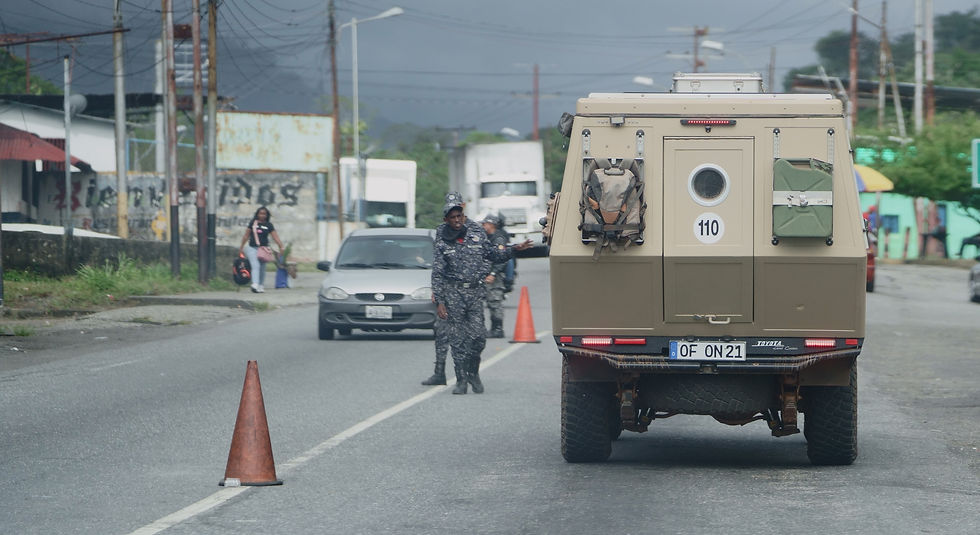
Happy and relaxed we are ready to leave Pousada. The check we get is quite unpleasant. From $15 per person per night, it rises to $125 for the two us. We pay for toilets, for our own cooking and a swimming pool that we have not used. The road is still decent, but intensified police checking reace ideas of how to take a bribe... It takes a lot of time. The case is obvious, you pay or wait 2 hours. For 15 km. Next stop. Here we find out that We exceeded the speed limit. I couldn't do it, do you have any proof? Yes, they got a call from the previous city to stop our car. I have to take their word for it... Once again, ask them to prove it, but their “patience” runs out. I have to get a lawyer and an interpreter because I don't know Spanish. I'm being detained and going to jail. We lost another hour... $10 made them wish me great travels and a pleasant stay in their country. This is how the merry-go-round begins, as in the Amusement Parks, that were closed in the previous century... we will not find vacations here. VENEZUELA. Day 6

After a night at the hotel, we choose the shortest way to the border. Locals say we need to have a lot of cash. It's Palm Sunday, we think maybe this day will be more pleasant. Surprisingly, we can refuel the car to full, but more and more poverty around us. There is more broken cars on the road then those driving. We are surprised that these cars drive at all. The authorities only care about central Venezuela. It is still 100 km to the border... Increased controls begin. Most of people are dressed in black. Their faces are not visible, most of them are covered with balaclava. More and more weapons in their hands. We no longer know who is checking us, the police or the locals. Right after the inspection... a bunch of young guys block the way. We don’t want to stop. There are too many of them to come out unscathed. We drive up slowly and as they approach we put on the gas... We slalom through the barriers. It worked, but the adrenaline mixed with sweat. Here people live from collecting salt from lakes. It looks magical. Sun-scorched white surfaces and black human faces... Maybe they have no bad intentions, but only protect themselves from the salty wind... But why do they need weapons? The border is getting closer. They check the documents carefully and already know that we cannot leave Venezuela. We have been in Venezuela for 6 days and the law states that we can leave the country only after 8 days. We are to spend 2 more days with them. It seems so absurd, they do not need that much time -after all, they can rob the whole car in half an hour... Why do they need so much time? We say we'll wait at the border, but they insist on staying with them. After an hour, they gave up, or the rules changed... Next and next check point and then again another one. For 2200 km through Venezuela there passed more than 200 of them. We reach the border. A crowd pass between scooters, motorcycles and cars, some driving against the flow, some stoping in the middle of the road. Someone is trying to control this cauldron... We give up driving after seeing a truck pushing into the lain, and the street vendors filling remaining space... How do they do it? We got exit stamps from Venezuela. On the other side, the longed-for Colombia. Our car will not pass today, it’s Sunday. We have to stay on the border until tomorrow.
EPILOGUE
Lonely Planet (latest edition) has over 1000 pages about South America and only a few about Venezuela. Highlights: "Venezuela is a tricky place to travel at present and showing up on a whim is a bad idea. Because of security concerns, we cannot recommend travelling to Venezuela at this time". We had no choice, because it was the only way to get out of flooded Brazil to Colombia.
From our perspective, the country is no longer so dangerous. Kidnapping for ransom seems to be exaggerated, armed or knife robberies are very possible, but our fake wallet with invalid cards and small money has never been used. The local people are helplessly nice. They have to compound to survive so they do it as much as they can. The shops are filled with goods, but too expensive for majority. A 5l. bottle of is 7 dollars, 1 Empanada 1.5$ in some states a liter of gasoline 2.5 dollars... at the official price of 5 cents per liter. 60% of unemployed and 6 million people in exile. We didn’t stay in Caracas, we only drove through this city, but we did not feel threatened. Nobody followed us, nobody stopped us. Petrol shortages and roadside checks were difficult. We feel sorry for the people who are dignified in humility and still smile on their impossibility to live normal. The government that introduced socialism 20 years ago, ruined the country completely and corrupted everyone. From what we have been told and read, the situation in today's Venezuela is exaggerated in the media... unless you find yourself close the northern border with Colombia.

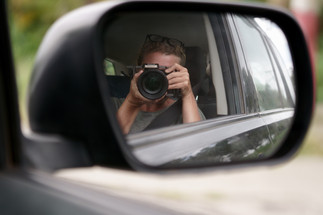


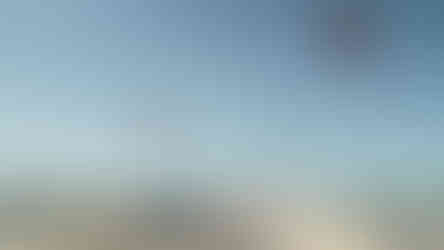







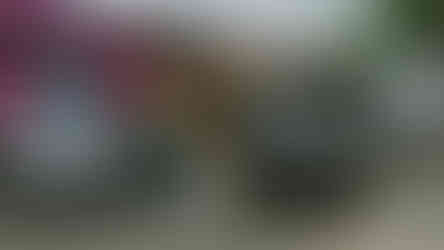
























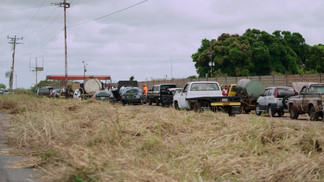





















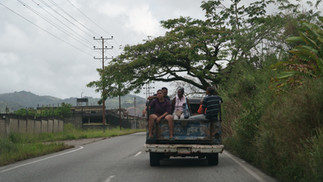





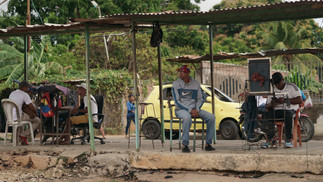





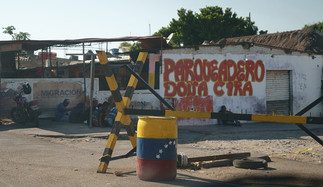






Comments